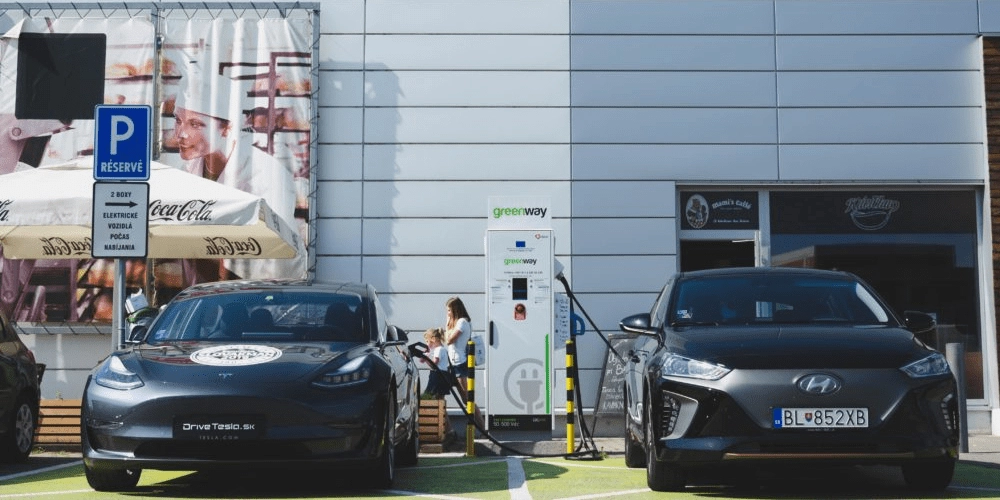In a conversation with Mobility Portal Europe, Patrik Križanský, Director of the Slovak Electric Vehicle Association (SEVA) and Vice-President of the European Association for Electromobility (AVERE), discusses the current state of the sector.

“The Slovak government’s support for the purchase of EVs needs to be more robust,” acknowledges Križanský.
The fact is that the last direct subsidy program was launched in 2019 with an initial budget of 6 million euros.
“Astonishingly, the entire amount was exhausted in just 5 minutes and 41 seconds from the call’s launch, with reservations made for 786 eco-friendly cars, the vast majority being fully electric vehicles,” he explains.
However, since the program ended in 2020, Slovakia has not had any direct subsidies for the purchase of EVs, a fact that Križanský considers “crucial.”
It is worth mentioning that in June 2023, the Cabinet approved a new set of policy tools for a broader E-Mobility Action Plan to stimulate the vehicle and charging infrastructure market with accompanying funding.
“One of the measures yet to be implemented is also the subsidy scheme for the purchase of electric vehicles,” says the SEVA director.
“The association was very active in this process and worked closely on the plan with the respective government agency,” he adds.
In addition to subsidies for electric cars, the E-Mobility Action Plan also foresees other tools that would stipulate, particularly corporate e-fleets.
“SEVA has proposed reallocating unused resources from the European Union’s Recovery and Resilience Fund to the pot allocated for EV support to implement the subsidies quickly,” indicates Križanský.
“For this, there is a clear EU guideline from the European Commission and best practices from other EU member states, such as neighboring Austria,” he adds.
Slovakia would allocate € 80 million for charging infrastructure
Slovakia’s Recovery Fund has allocated 50 million euros to implement charging infrastructure.
Therefore, the network of over 1,700 public chargers currently available should be expanded by at least 3,000 new units by the end of 2026.
“Two calls for cities and private companies have already been launched to support public AC and DC chargers,” comments the association’s director.
Another component of this package, which foresees 30 million for implementing 230 ultra-fast charging units along the highways, is in preparation.
“Here, the key is to upgrade available grid infrastructure and enable connections of hubs with at least 3 MW capacity per each,” says Križanský.
These calls and projects are being closely consulted with SEVA as the primary industry representative.
In addition to infrastructure investments, SEVA’s other priorities are the permitting process and grid connection upgrades.
Another issue under debate between the industry and the government is the legal uncertainty surrounding safety and fire regulations for charging stations.
All these topics are part of the measures addressed by the approved E-Mobility Action Plan.
Battery Production in Slovakia
“The transition to electromobility could benefit Slovakia’s automotive industry, provided investments are made in research, development, and local battery production capabilities,” explains Križanský.
The country needs to compete in this sector as it is not economically viable to transport batteries over long distances. Ideally, they should be manufactured close to where they are installed in electric vehicles.
Fortunately, just days ago, the Chinese company Gotion High Tech and its Slovak partner InoBat signed a memorandum to build a plant in Slovakia.
Battery production for EVs is expected to begin in 2026.
New Investments in EV Manufacturing
“Despite resistance from some political leaders to phasing out internal combustion vehicles after 2035, Slovak automakers, who primarily produce for export, have already taken irreversible steps towards electromobility,” comments Križanský.
One of the most significant announced investments is Volvo’s plant in the east of the country, which will exclusively produce EVs upon its launch in 2026.
Furthermore, other Original Equipment Manufacturers (OEMs) are already investing in new models.
Last month, Stellantis launched a new electric Citroën ë-C3, which will be produced in its Slovak facility.
Similarly, Volkswagen is preparing its facility for the launch of an electric Porsche model.
Another Porsche-owned factory is investing 1 billion euros in the production of battery modules.
“These are examples of a longer list of investments in the electric transformation of the country’s automotive industry,” acknowledges the director of SEVA.








